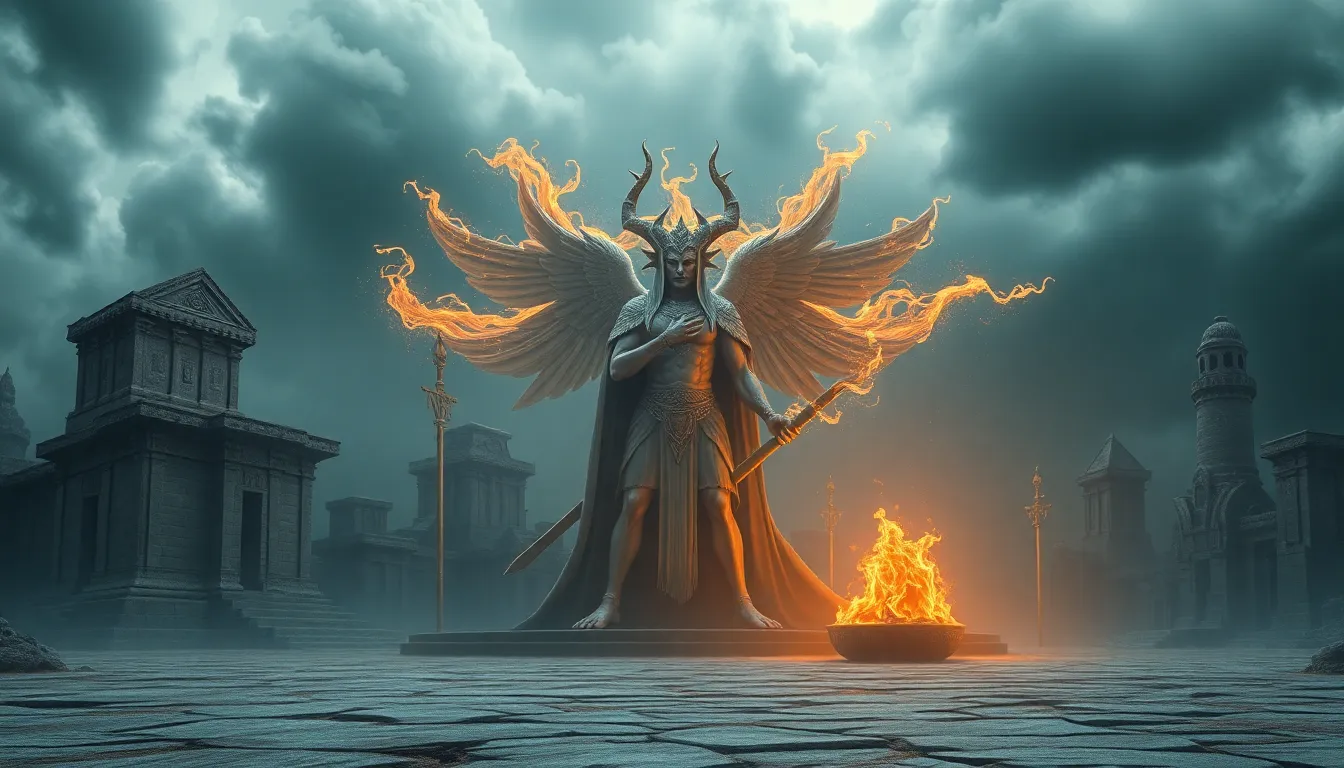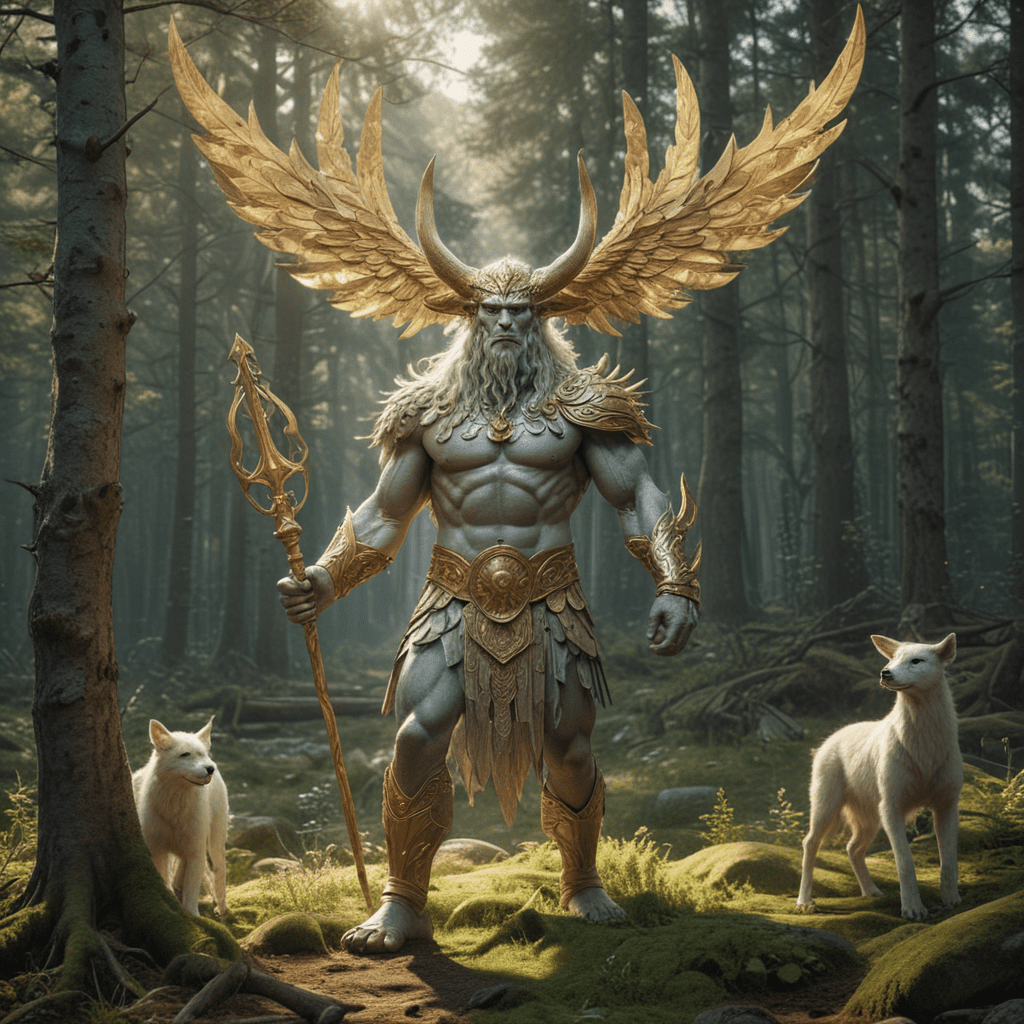The Myths of Ancient Deities and Their Impact on Modern Society
Introduction to Ancient Deities
Ancient deities have played a pivotal role in shaping the beliefs, cultures, and histories of civilizations throughout the ages. Defined as supernatural beings or gods worshipped by various peoples, these deities often embody the values, fears, and aspirations of the societies that revere them. From the pantheon of Greek gods to the complex deities of Hinduism, the significance of these figures extends beyond mere storytelling; they provide insight into the human experience.
Mythology serves as a lens through which we can explore the nature of humanity, our place in the universe, and the moral frameworks that guide our lives. As narratives that intertwine the divine with the mundane, myths offer profound lessons and reflections on existence.
The Origins of Mythology
The historical context of ancient myths can be traced back to the dawn of civilization. As humans began to form societies, they sought explanations for natural phenomena, life events, and existential questions. This quest led to the creation of myths, which served as narratives to explain the unexplainable.
From an anthropological perspective, deities emerged as personifications of natural forces, societal ideals, and human traits. Myths developed through oral traditions and were passed down through generations, evolving with each retelling. This dynamic nature reflects the changing values and beliefs of cultures.
Key Ancient Deities and Their Myths
Throughout history, numerous deities have captured the imagination of humankind. Here are brief profiles of some notable ancient deities:
- Zeus: The king of the Greek gods, Zeus is known for his control over the sky and lightning. His myths often involve themes of power, justice, and infidelity.
- Osiris: In Egyptian mythology, Osiris represents resurrection and the afterlife. His narrative of death and rebirth is central to ancient Egyptian beliefs about immortality.
- Athena: The Greek goddess of wisdom and warfare, Athena is known for her strategic prowess and protective qualities, notably in the myth of the Trojan War.
- Vishnu: A major deity in Hinduism, Vishnu is the preserver of the universe. His ten avatars, including Rama and Krishna, illustrate the themes of dharma (duty) and righteousness.
Symbolism and Archetypes in Ancient Myths
Common themes and symbols can be found across various cultures’ mythologies. These include:
- The Hero’s Journey: Many myths feature a hero who embarks on a quest, faces trials, and ultimately undergoes transformation.
- The Great Flood: Flood myths exist in numerous cultures, symbolizing destruction and rebirth.
- Creation Myths: Many societies have stories about the origins of the world, reflecting their understanding of existence.
Archetypes found in these myths shape human psychology and behavior, influencing how we perceive ourselves and our relationships with others. Carl Jung’s concept of the collective unconscious posits that these archetypes resonate universally across cultures.
The Influence of Ancient Myths on Modern Literature and Art
Ancient deities continue to inspire contemporary literature and art. Examples include:
- Neil Gaiman’s “American Gods”: This novel reimagines ancient deities in a modern setting, exploring their relevance in contemporary society.
- Rick Riordan’s “Percy Jackson” series: This series introduces Greek mythology to a younger audience, blending ancient stories with modern adventure.
- Contemporary art: Many artists draw on mythological themes, creating works that reflect ancient narratives through a modern lens.
The enduring legacy of mythological themes in storytelling underscores their timelessness and adaptability.
Mythology and Religion: Connections and Divergences
The relationship between ancient myths and organized religions is complex. While myths often serve as the foundation of religious belief systems, they can also diverge significantly. For example:
- Many organized religions have evolved from mythological stories, integrating them into their doctrines.
- Some myths have been reinterpreted to align with new spiritual beliefs, while others have been marginalized or forgotten.
Mythology has shaped modern spiritual beliefs and practices, influencing how individuals understand the divine and their relationship with it.
Cultural Appropriation and Misrepresentation of Myths
In contemporary society, the appropriation of ancient deities in popular culture raises important ethical questions. This includes:
- The commercialization of myths in movies, books, and merchandise that often neglects their cultural significance.
- The misrepresentation of deities and their narratives, which can lead to misunderstandings and reinforce stereotypes.
These implications highlight the need for sensitivity and respect towards the cultures from which these myths originate.
Psychological and Sociological Impact of Myths
Ancient myths continue to influence modern identity and cultural narratives. They play a role in shaping societal norms and values by:
- Providing frameworks for understanding morality and ethics.
- Offering archetypal stories that resonate with personal experiences, allowing individuals to find meaning in their lives.
Myths serve as a bridge between the past and present, informing our understanding of ourselves and our communities.
Modern Interpretations and Revivals of Ancient Myths
In recent years, there has been a resurgence of interest in ancient deities and mythologies. Movements such as modern paganism seek to revive or reinterpret these ancient beliefs, demonstrating their relevance in today’s world. Case studies include:
- Wicca: A contemporary pagan religious movement that draws on ancient mythologies and nature worship.
- Heathenry: A revival of ancient Norse and Germanic religions that honors the old gods through rituals and practices.
These movements reflect a desire to reconnect with ancestral traditions and find spiritual fulfillment through ancient narratives.
Conclusion: The Timelessness of Myths
In conclusion, ancient deities and their myths remain relevant in contemporary society, offering insights into human experiences and challenges. By understanding these narratives, we can gain a deeper appreciation for our cultural heritage and the timeless questions of existence that they address. The exploration of ancient myths not only enriches our understanding of the past but also illuminates the pathways through which we navigate the complexities of modern life.




